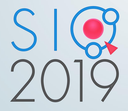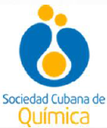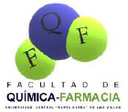Executive Secretary

VII Simposio Internacional de Química 2019
SIQ 2019
Many anticancer agents strongly cause noxious effects to human body and therefore the development of suitable delivery systems for these antineoplastic drugs has received a noteworthy attention in cancer research. Nanogels—particles of polymer gels having the dimensions in the order of nanometers—are promising novel pharmaceutical carriers for biologically active agents, biomacromolecules and can be modified to incorporate ligands for targeted drug delivery. The purpose of this study was to formulate 5-Fluorouracil (5-FU) loaded polyvinylpyrrolidone (PVP) nanogels for the controlled release of this anticancer drug and analyze the physical and chemical properties and in vitro toxicity of the prepared formulations. The release rate of 5-FU from drug/polymer nanoparticles was investigated as well. Synthesis experiments were carried out at 25 ° C in a Gamma Irradiation Chamber with a 60Co source in absence of oxygen using aqueous PVP solution (0.05 – 0.3%). Quantitative determination of cytotoxicity of nanogels and of the formulation were investigated in Vero cell lines. The Scanning Electron Microscopy (SEM), Transmission Electron microscopy (TEM), Attenuate Total Reflection Spectroscopy (ATR), Thermogravimetric (TGA) and Dynamic Light Scattering (DLS) were used as characterization techniques. The results showed that high swollen drug/nanogel formulations, which have a spherical morphology, strongly depend of total absorbed dose at defined composition. Nanoparticles displayed slowed release patterns in comparison with the conventional drug formulation being potentially used for the controlled delivery of the anticancer drugs. The PVP nanogels are biocompatible and promote a low-intensity neutrophil activation, similar to the well-characterized biomaterial TiO2, suggesting their potential as nanocarriers.
Many anticancer agents strongly cause noxious effects to human body and therefore the development of suitable delivery systems for these antineoplastic drugs has received a noteworthy attention in cancer research. Nanogels—particles of polymer gels having the dimensions in the order of nanometers—are promising novel pharmaceutical carriers for biologically active agents, biomacromolecules and can be modified to incorporate ligands for targeted drug delivery. The purpose of this study was to formulate 5-Fluorouracil (5-FU) loaded polyvinylpyrrolidone (PVP) nanogels for the controlled release of this anticancer drug and analyze the physical and chemical properties and in vitro toxicity of the prepared formulations. The release rate of 5-FU from drug/polymer nanoparticles was investigated as well. Synthesis experiments were carried out at 25 ° C in a Gamma Irradiation Chamber with a 60Co source in absence of oxygen using aqueous PVP solution (0.05 – 0.3%). Quantitative determination of cytotoxicity of nanogels and of the formulation were investigated in Vero cell lines. The Scanning Electron Microscopy (SEM), Transmission Electron microscopy (TEM), Attenuate Total Reflection Spectroscopy (ATR), Thermogravimetric (TGA) and Dynamic Light Scattering (DLS) were used as characterization techniques. The results showed that high swollen drug/nanogel formulations, which have a spherical morphology, strongly depend of total absorbed dose at defined composition. Nanoparticles displayed slowed release patterns in comparison with the conventional drug formulation being potentially used for the controlled delivery of the anticancer drugs. The PVP nanogels are biocompatible and promote a low-intensity neutrophil activation, similar to the well-characterized biomaterial TiO2, suggesting their potential as nanocarriers.
Sobre el ponente

Prof. Adrian Alejandro Ges Naranjo






